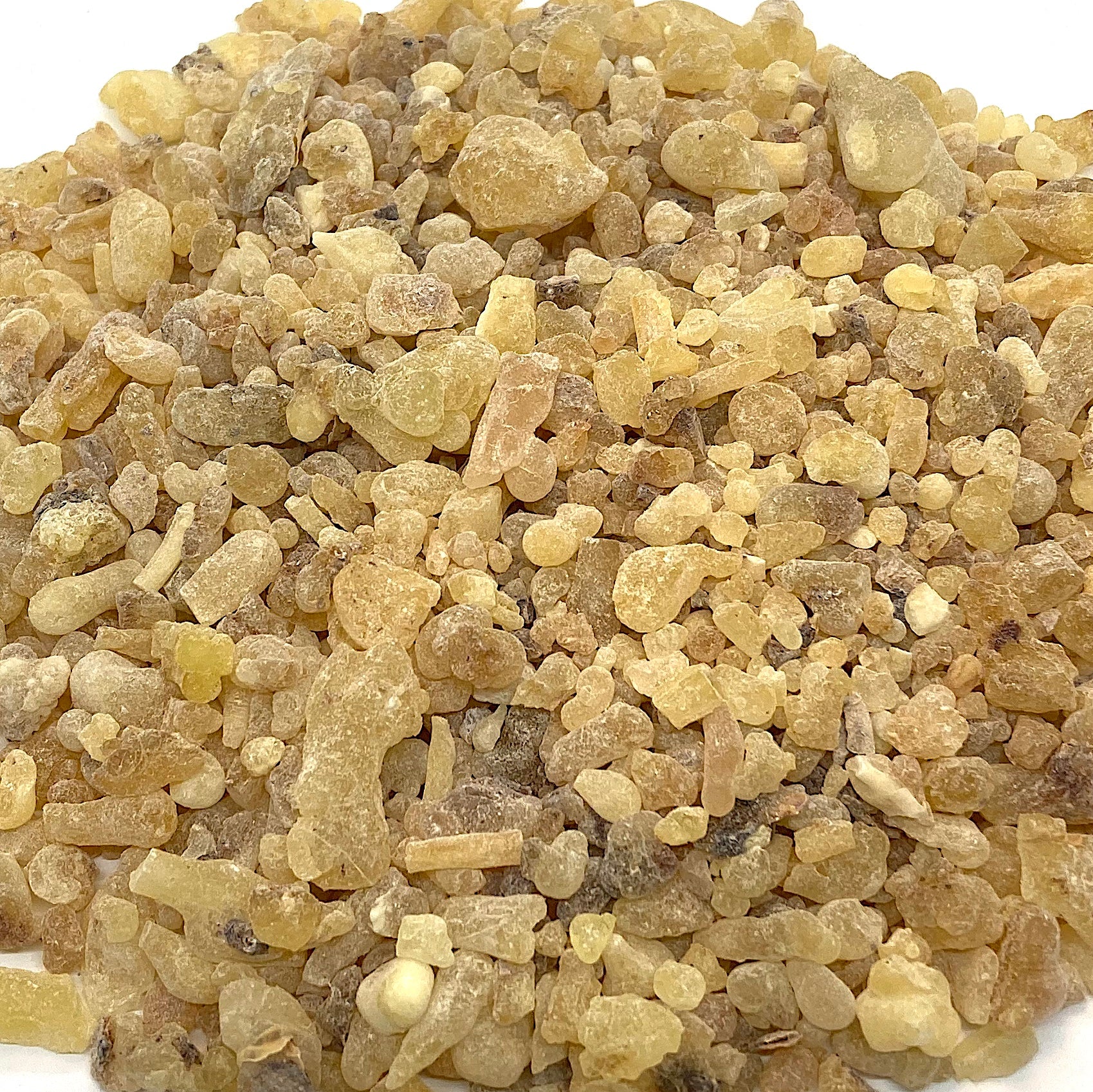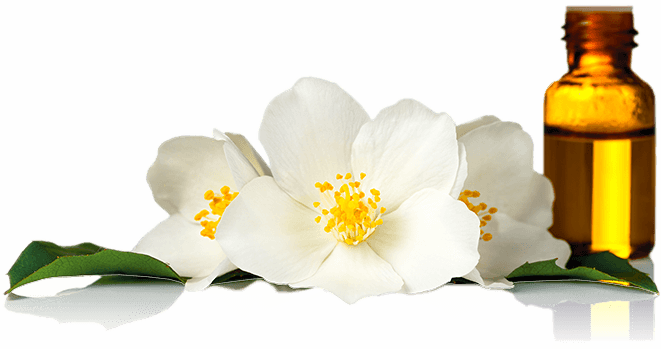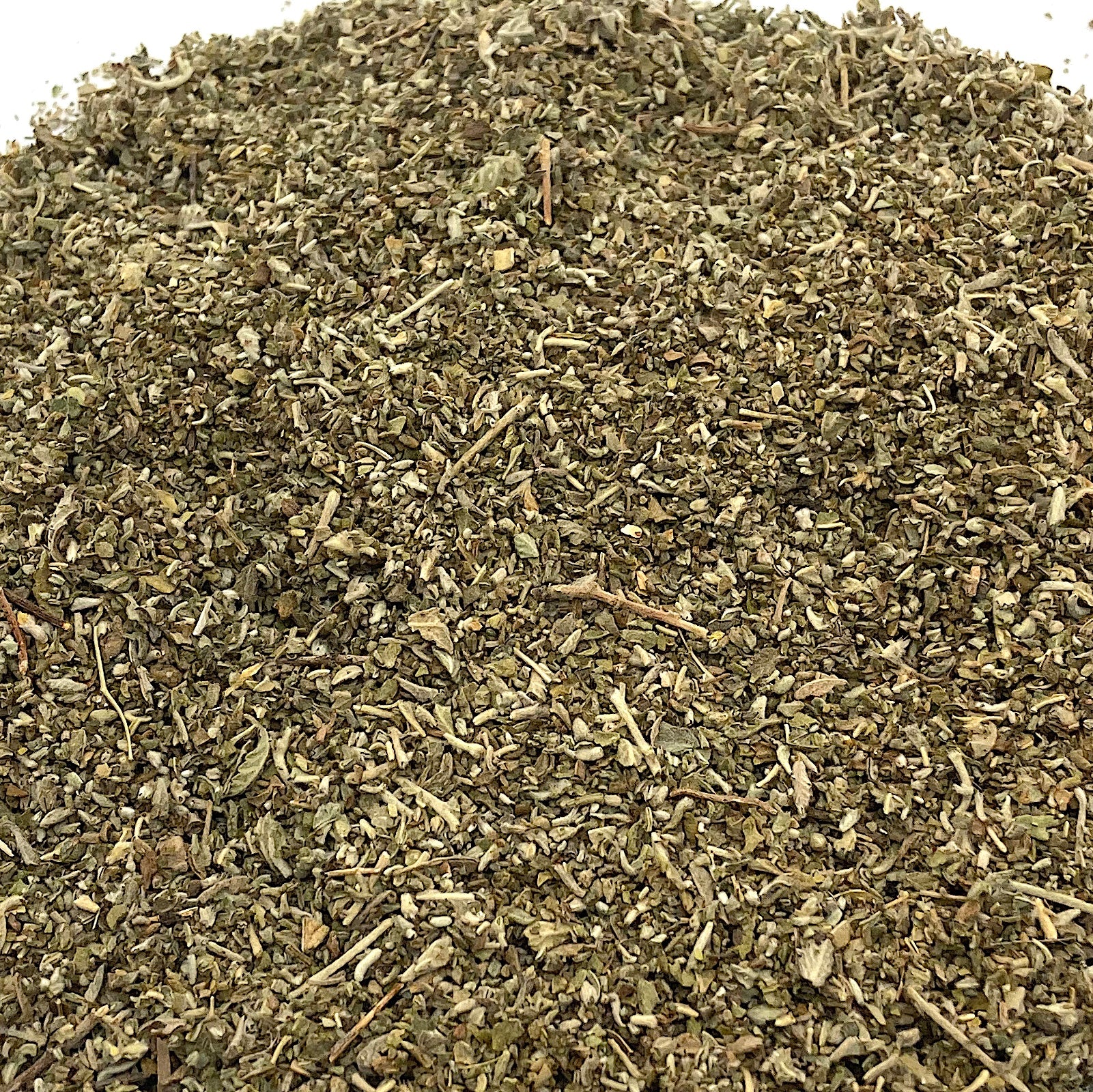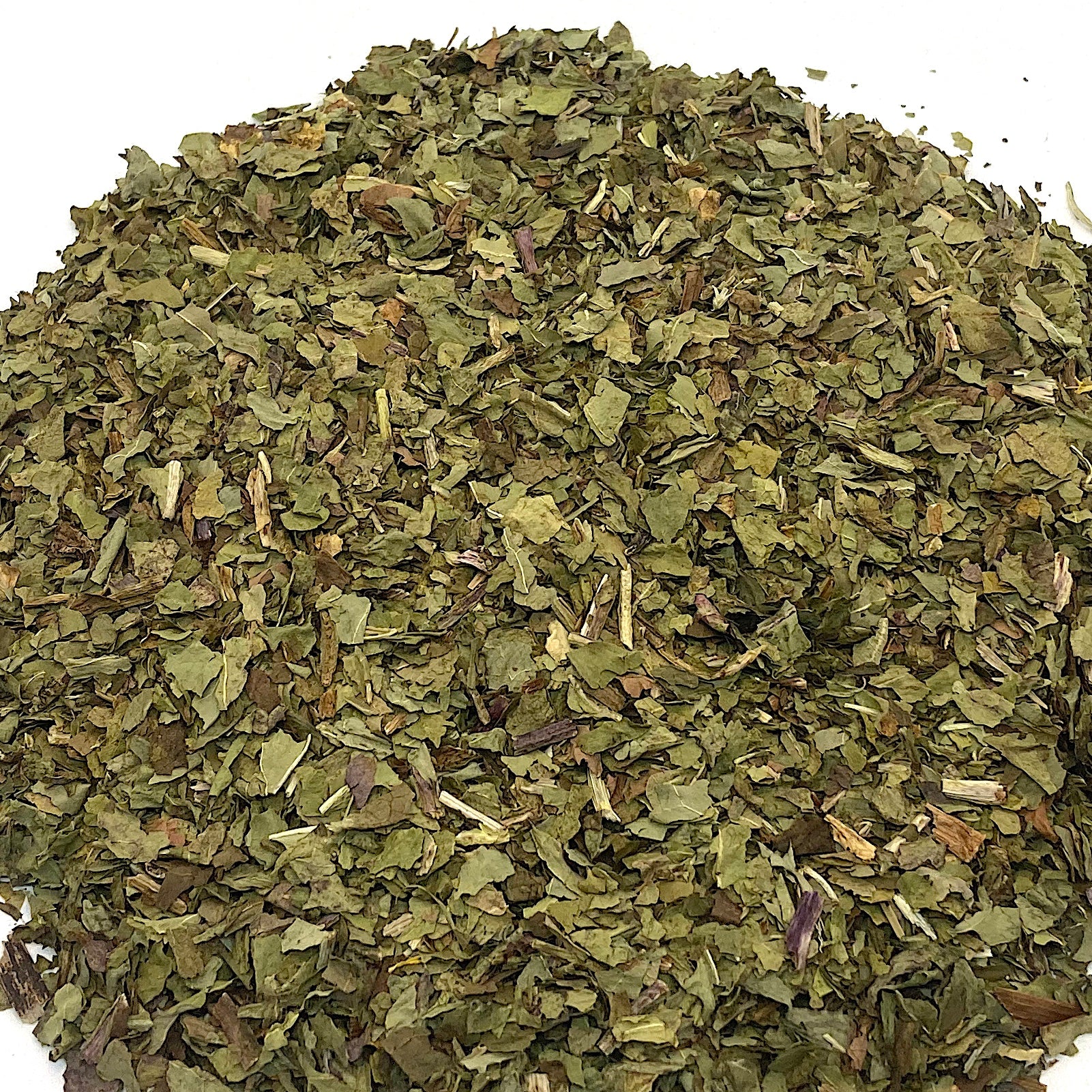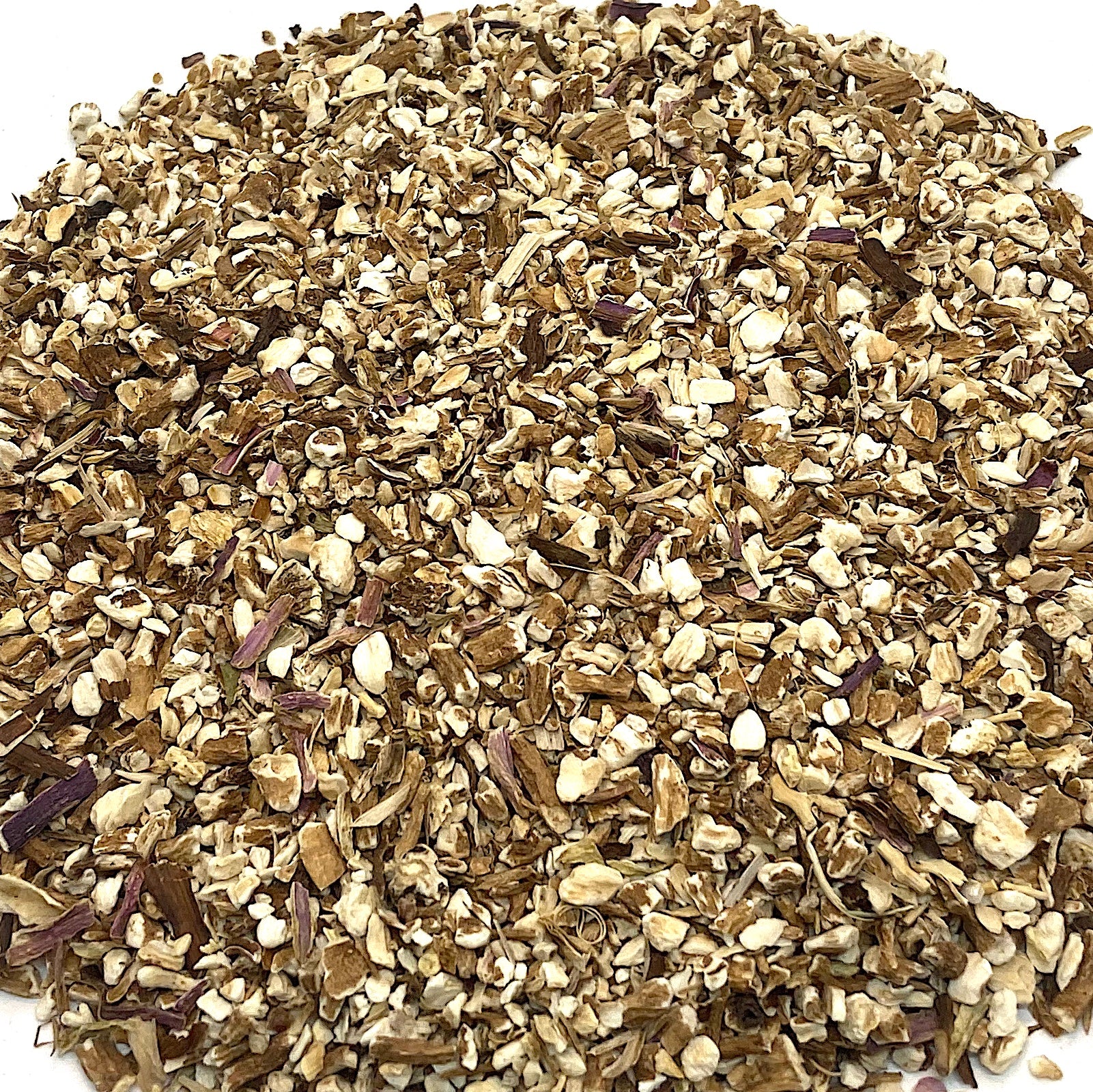Description
SOMALIA. Frankincense (Boswellia sacra) Resin
Common names: Ru Xiang, Dhoop, Arbre a Encens, Coccinia India, Olibanum, Nyuko, Levonah, Gajabhakshya, Lubban, Yuhyang
Family: Burseraceae
Boswellia sacra is a deciduous tree, growing from 6 to 25 feet high, native to rocky hillsides and dry woods in areas near the Red Sea in Oman, Yemen, and Somalia. The trunks or branches of the trees are cut, and the resulting “tears” of fragrant resin harden and are collected by hand.
Frankincense, extracted from B. sacra and several closely related species, has been traded on the Arabian Peninsula for over six millennia. In addition to its uses as incense and remedy, it has been used in perfumes, cosmetics, aromatherapy, and skin care products, and was employed in the process of Egyptian mummification. Burned during Orthodox Christian and Catholic church services, Frankincense, like Myrrh, is mixed with oil for ritually anointing Christian and Muslim believers.
Frankincense is used in traditional Chinese, Ayurvedic, and Persian medicine. Actions attributed to it include relieving pain and inflammation, stimulating blood circulation and brain function, countering bacterial and fungal infections, and promoting wound healing. It has been prescribed to treat diabetes; arthritis; stomach, intestinal, and digestive conditions; menstrual and urinary tract disorders; blood clots; and respiratory illnesses. A 2018 study proved the effectiveness of Frankincense smoke in cleansing the air of a 17th century church of bacterial and fungal contamination.
Known active components include resins; volatile oils; terpenes and related compounds, notably boswellic acids; and polysaccharides.
The scientific literature on the therapeutic value of Frankincense and its extracts, covering a wide range of health issues, is extremely impressive in validating its traditional uses, and suggesting further potential benefits!
*These statements have not been evaluated by the FDA. These products are not intended to diagnose, treat, cure or prevent any disease.

